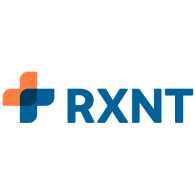Let’s shed some light on an important aspect of medical billing: denial management. As a healthcare provider it is crucial to understand the process of reviewing and managing denied claims, as well as knowing how to resubmit corrected claims or file appeals. So, let’s delve into this topic and equip ourselves with valuable knowledge.
Reviewing and managing denied claims is a vital step in ensuring the reimbursement process runs smoothly. Denials can occur for various reasons, ranging from missing or incorrect information to lack of medical necessity documentation. It is crucial to promptly identify and address these denials to minimize financial loss and maintain a healthy revenue cycle.
To begin the denial management process, it is essential to regularly review and track claims that have been denied. Implementing effective technology or software can help in simplifying this task by providing alerts and automated reporting. By identifying common denial patterns, you can pinpoint recurring issues and proactively resolve them.
Once you’ve reviewed the denied claim, the next step is to determine the appropriate action to take. In some cases, resubmitting corrected claims will be the best course of action. Correcting any errors or omissions in the initial claim can significantly improve the chances of reimbursement. Paying attention to detail and ensuring accurate coding and documentation is crucial when resubmitting a claim.
However, there can be instances where resubmitting a claim may not be enough. For more complex denials or claims that require additional clarification, filing an appeal becomes necessary. Appeals should be carefully prepared, with a proper understanding of the insurance company’s specific guidelines and requirements. Collecting and providing any supporting documentation, such as medical records or prior authorizations, is essential to strengthen your appeal.
To maximize the chances of successful appeals, it is important to track the progress of each appeal and maintain effective communication with the insurance company. Documenting all interactions, including dates, names, and phone calls, can help in resolving appeals efficiently and avoiding any potential miscommunication.
In summary, denial management plays a crucial role in ensuring healthcare providers receive proper reimbursement. By regularly reviewing and managing denied claims, carefully resubmitting corrected claims, and filing appeals when necessary, you can streamline your revenue cycle and protect your practice’s financial health.
We hope this information proves helpful to you and your team at Granite Billing. If you have any questions or require further assistance, please feel free to reach out to our dedicated support team. Happy billing!





















